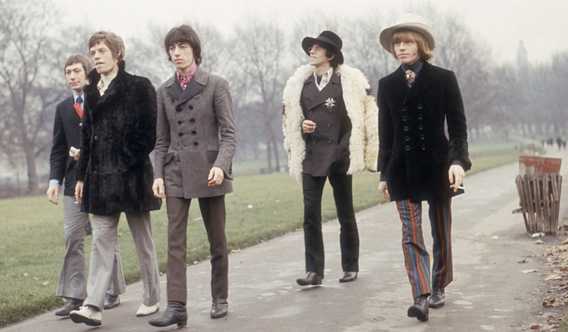Videos by American Songwriter
The Rolling Stones have carved themselves a sizable niche as the spearhead of a movement that awakened the American consciousness to that neglected part of its own musical heritage—the blues. In this respect their influence has probably been more far-reaching than that of that other flank of the British “invasion,” the Beatles. Plus, the Stones are still very much with us!
When Keith spoke of Muddy Waters at the close of our interview, I like to think he was unconsciously expressing hopes for his and the Stones’ future.
Chris: So you’ve just finished a new Stones album, right?
Keith: Yeah. Dirty Work.
Chris: Gonna tour?
Keith: Good question. Can’t really give you a definite on that. I think so, though.
Chris: Why haven’t you done a solo album like other members of the group?
Keith: I’ve never had a clear enough idea of what I’d want to do. Something’s been forming up in my mind over the last three months. Stuff I’ve been thinking of doing for years. It’s sort of coming together. But I’m waiting for the little internal clock in me that says, “Now!”, you know. I may well do something when this Stones thing is on its way—after the record and the tour—I may do something later this year. Make a start of it anyway.
Chris: What about producing?
Keith: Yeah, it was interesting doing Peter Tosh and Max Romeo, but the thing that stopped me doing more of that has always been the time thing, you know, sort of being able to say to somebody definitely that I can spend . . . give all my time for as long as it takes, you know. I don’t think I’d like to take something on a schedule like, “We’ve only got four weeks in the studio here.” I wanna be able to promise, to say I’ve definitely got the time, let’s take as long as it takes and get it right. There’s quite a few people fishing around, a mention here and there if we can put it together. I enjoy working with other people very much and, given the time, I’d work with just about anybody, really. As long as I can get along with them and they’ve got some good stuff to do.
Chris: Did you enjoy working on the Tom Waits album?
Keith: Yeah. Very much. I’d never met him before. He asked me to do one track and we were having such fun we tried a bit on this one and a bit on that one. A good lad! I didn’t realize how complex his stuff was till I started getting into it. ’Cause on the surface it sounds very casually thrown-together blues, but some of the times are very sort of jazz.
Chris: Since the first Stones album was cut on a two-track recorder, what is your reaction to the ongoing rampant technological explosion in the recording studio?
Keith: A lot of young bands that come and see us in the studio can’t believe there’s an actual band in there playing all at once. They think it’s some new technique for recording, ’cause with those guys it’s the drummer Mondays and Tuesdays and the bass player goes in on Fridays or something—they never see each other!
Chris: And drum machines that are judged by how like real drums they sound, and drummers who are judged by how like drum machines they sound!
Keith: That’s true. So much technology has flooded in in the last seven or eight years—not that it ever stopped, but it’s speeding up a bit now with all the possibilities—and everybody’s going a bit berserk. What you eventually end up with, right, is that you’ve got five million more possibilities of what you can do with all these different pieces of equipment with the result that all records start to sound more and more alike—and most records are made on the same three or four pieces of equipment. A studio will buy a new piece of equipment even if it costs a billion dollars, because it keeps you in the studio. They know that every time they give you another possibility or a choice to make, you have to be making these decisions in the studio and the clock’s ticking and money’s going around. I mean, you can make a movie with the budget of a record for a big group.














Leave a Reply
Only members can comment. Become a member. Already a member? Log in.